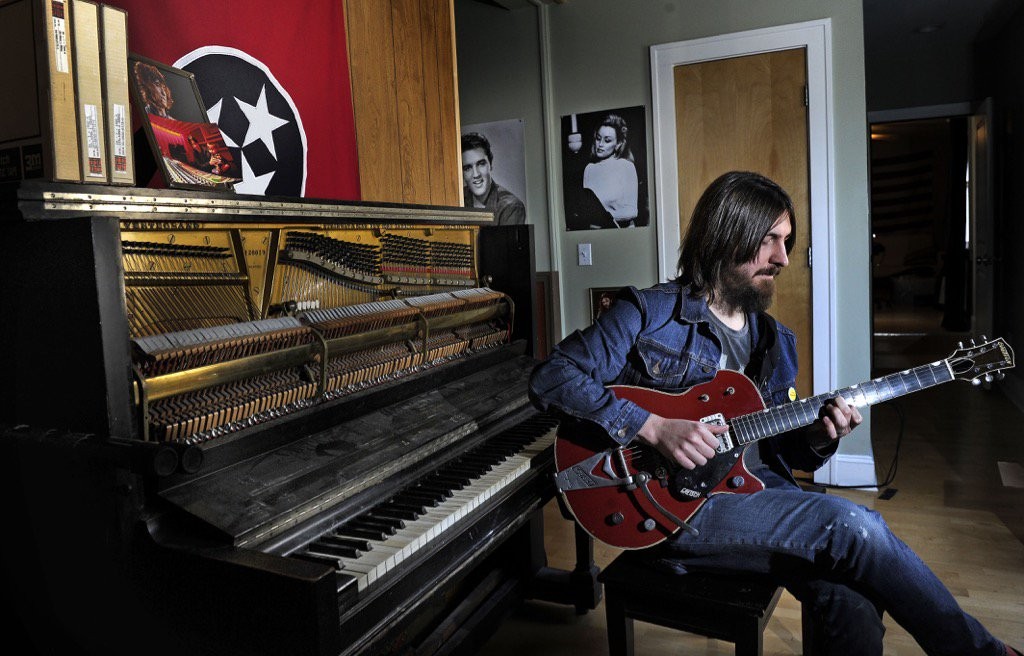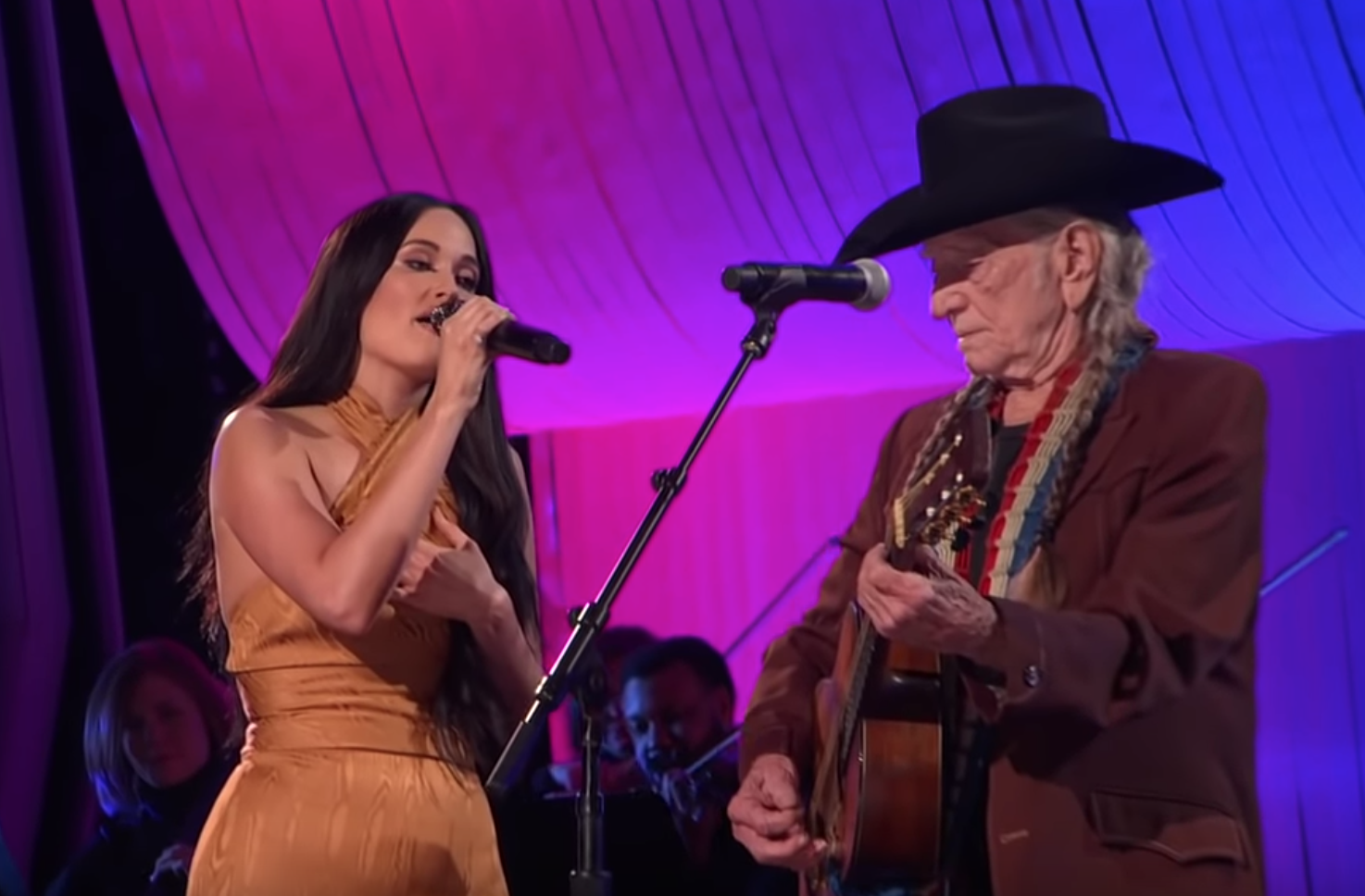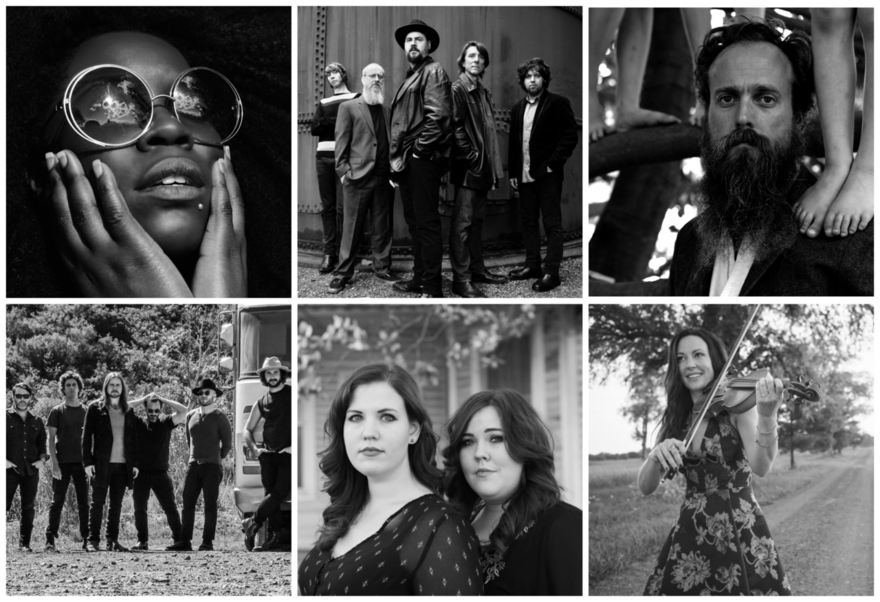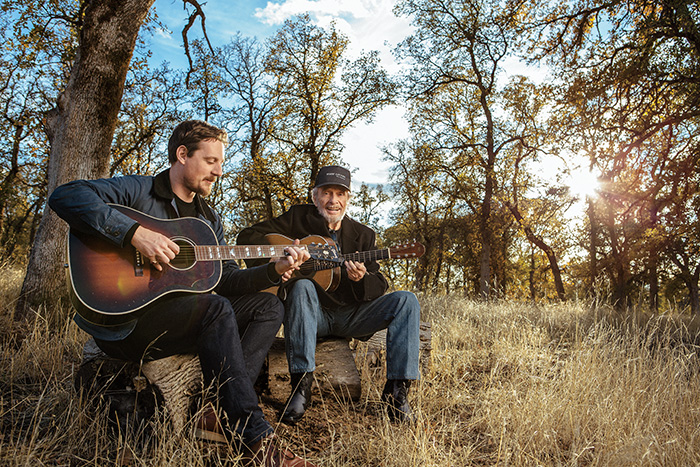
Being a great record producer means striking a delicate balance between passion for music and staking out an objective distance. One tip toward the former and a heavy hand can interfere in an artist’s true voice. Tip to the latter and there’s a technical hollowing resulting in a bloodless product.
David Cobb is a man that walks that line with his attention to detail and courage to take risks to capture sonic lightning in a bottle.
With a rock and roll heart he moved to L.A. to pursue a musician’s life. But through happenstance, his love for classic records, as well as the call of his Southern roots and love of family and friends, he has found himself one of the most in-demand producers in Nashville.
His journey to find the beating heart in the body of the process has led him to helping create in his home studio – or sometimes his kitchen in the case of Jason Isbell’s “Southeastern” – some of the most acclaimed records by contemporary roots artists. Folks like Shooter Jennings, Jamey Johnson, Chris Stapleton, Sturgill Simpson, Corb Lund, Lindi Ortega as well as upcoming releases by Holly Williams, Lake Street Dive and Amanda Shires – have found in him a kindred spirit. Incredibly talented people that he sees as more than clients, but as collaborators, friends and makers of sonic magic.
That’s what sets Cobb apart from other producers. Sure his first-hand knowledge comes from sitting where the musician sits and it buys him a good deal of credibility in the studio. But it’s his wide-eyed wonder, his true sincerity, his love of the art and faith in the artist that connects him in a way that few have done.
That also makes him a very busy man. Cobb took time from that busy schedule to talk to me from his home in Nashville.
TN: How long have you been in Nashville and what led you to move from L.A?
DC: I’ve been out here just over four years. Whenever I would travel out here the city was alive. This was the best music scene I’ve ever seen. There’s just an incredible amount of talent. The songwriting out here is insane.
TN: The city certainly has changed in the last few decades. It’s no longer just all about Music Row.
DC: Not at all. There’s such a great rock and outsider country scene. It’s alive, man. Everywhere you go.
TN: Your timing certainly seems right for where you wanted to take your career.
DC: It’s funny. What prompted me to move to Nashville was I was working with a band in L.A. and one of the guys in the band put on the song ‘Outfit” by the Drive-By Truckers. When I heard that song it really made me homesick. It reminded me of exactly how I grew up and the way it is in the Southeast. I suddenly felt a desire to come this way. I was in L.A. working with rock bands but now have a daughter and a move made sense. But hearing that song was a real pivotal thing. It’s funny how a lyric can rock you to the core like that. Then I chased that dude (Jason Isbell) down ever since to make a record.
TN: The Drive-By Truckers were one of the band that brought those same homesick feelings in me while riding the subway to work each day while living in New York City. Their sound was key in me starting this blog and begin discovering other bands in that vein.
DC: Absolutely, that’s the real sound of the South that I grew up with. Growing up in Georgia there was always a country music scene but this is beyond that. There’s this big lyrical , real songwriter thing. People playing in bars and writing great songs. This affects me much more than the typical country stuff. A little country and a little rock with a little folk. It hit me more than most of the stuff I’d been into.
TN: It’s refreshing and exciting to hear Southern songwriters grapple with our history while forging a new culture and new sounds toward the future.
DC: With the line “Don’t Tell ’em your Bigger Than Jesus, Don’t Give It Away” is pure Southern frankness and the swipe at John Lennon’s famous quote is excellent. The Southern idea that you’re suppose to keep yourself in check. You’re to know your place and never get cocky and not stray too far from home.
TN: Part of it is cultural and steeped in tradition but then there’s the economic part that if the next generation leaves where is the workforce for the mine or plant. A lot of great music deals with these themes of hardship and trying to get out.
DC: Absolutely. I remember after moving to California I would come back to visit my grandparents in Savannah and everyone would call you hollywood. You’d get teased pretty bad. It’s part of the Southeastern culture is there’s a culture of sticking it out. I actually enjoyed being a Southerner in L.A. I thought it was fun. Nobody ever moves there from Georgia. There’s lots of Texans and folks from the Mid-West but not from Georgia, it’s too far away.
TN; I’ve enjoyed L.A. the few times I’ve been there. I usually end up in some bar with Shooter (Jennings) As a matter of fact he’s the first person I remember bringing your name up.
DC: I just worked with Shooter again a few weeks ago in New York for the first time in years and we had a blast. I love that guy. I owe Shooter a lot and I would not be in Nashville today if it wasn’t for him. The first time I ever came to Nashville was to work on his ‘Electric Rodeo.’ He introduced me to great country music. Growing up my parents listed to Kenny Rogers and Barbara Mandrell, that sort of stuff. All I wanted to listen to was AC/DC (laughs.) My parents didn’t have Waylon or Don Williams records. Shooter turned me on to the good stuff. There was one record in particular called ‘White Mansions,’ ( by Waylon Jennings, Jessi Colter, John Dillon and Steve Cash) that’s the record that really got me. There’s something about the way it felt. It came at country in a very cinematic way, it’s very powerful.
TN: Tell me about the first time you met Shooter.
DC: I had this stupid idea when I moved to L.A. that I was going to buy a ’69 Dodge Charger and paint it like the General Lee and drive it around town. So I had these business cards made up with ’01’ printed on it. My manager set up a meeting with Shooter and I and I’m trying to hide my business card. Then we end up working together and doing stuff for the Dukes Of Hazard. L.A. is crazy like that. Shooter is one of the most humble and kind people I know. He’s the real deal.
TN: Few producers have had as much influence in contemporary roots music as you have. Part of the master plan?
DC: (Laughs) It’s definitely not part of a master plan. I moved to L.A. to do rock records. After my work with Shooter I did some songs with Jamey Johnson on ‘That Lonesome Song’ I started to get the country calls and that’s when I started coming to Nashville pretty regularly. One of the acts that called was the Oak Ridge Boys, one of my dad’s favorite bands. While working with them I had in the back of my head, my grandmother was a Pentecostal minister, and she used to tell my “Honey, you have to make music for the Lord,” she had the Oak Ridge Quartet records, she didn’t have a T.V. but she had those records. It was the first time my work connected with my past. That was exactly where I came from and the people I was surrounded with. You get this feeling that just feels like home.
I did a lot of research on that Oak Ridge Boys project. I started digging way back in old Gospel albums, stuff from the turn if the century. The music kept coming in and it started to mean more to me than the Led Zeppelin and The Beatles and Stones I grew up on. Then you realize that’s where they got it from.
TN: Why do you think Americana and roots music has become so commercially successful?
DC: My take, and it’s probably totally off, but with all the streaming and stealing music has no monetary value any more. But I think true artistry does. When Jason Isbell or Sturgill or Stapleton write records to…not be on the charts, not trying to make top 10 singles…it’s just making something personal. I think people are willing to put up money when they feel people are putting in the effort, making art. You want to buy the album, you want to go to the show and buy a t-shirt. It becomes more of a lifestyle instead of a commodity. There’s a loyalty instilled that you don’t get with pop. Theses fans will stick with them. Maybe real art is the only thing that defeats music piracy.
TN: When I saw Sturgill and Isbell early in their careers they were playing to small venues and giving it as much as if they were playing a large hall. They were giving people their moneys worth.
DC: I just think that’s who they are. I remember in rock bands growing up and there was “put on your stage costume.” These guys wear what they always wear , it’s who they are. They play these small clubs and they give it 110% it’s who they are no matter where they are because they love it. Money is not the motivation for these guys, I know them. I’m just happy that people are supporting them, it’s a very special time when people are craving something real.
TN: As someone helping to define the genre how would you define Americana?
DC: Man, I just see Americana is another word for honest. Call it what you want I’m just happy people are out supporting it. I thought it was great when Jason’s record went #1 on the folk, country and rock chart. That means they couldn’t figure out what it was so they had to spread it across categories. That’s great and really funny.
When I worked with Chris Stapleton at the big label Mercury they let him make the album he wanted with no pressure for singles. They got it. They let him make an honest record and they supported him down the line. I even see Nashville embracing real art, they are feeling the influences. For example I recently cut a song with Brandy Clark, she’s got one of the best voices I’ve ever heard. She’s amazing. I think things are changing for the best. I think a lot of mainstream artist might prefer to make a more honest album.
TN: How was it to work with Jason Isbell on his most acclaimed albums?
DC: He just writes these devastating songs. My job was to clear things out of the way of the lyrics. When he and I first met , and couple of weeks before we did ‘Southeastern,’ I played him one of my favorite records Simon and Garfunkel’s ‘Bridge Over Trouble Water.’ There’s a song on that record called ‘The Only Living Boy in New York,’ to me it’s a masterpiece if an album and I think the production is brilliant. It’s an acoustic feeling record that’s not acoustic at all. That’s the approach we wanted to take with Southeastern.’ It’s like he’s on an acoustic guitar singing directly to you but there’s a lot more going on. The way I work is I think vocals are the most important element for emotional communication. Especially when you have artists like Jason that write such great lyrics, my job is to hear that and clear the space and let that emotion through.
When we did the Isbell records we never listened to the songs before we go into the studio, He walks in and says “Here’s a song” and it’s like “Great let’s do it.” When he did “Elephant” from “Southeastern” it was one of those moments “I can’t believe this is coming through the speakers.” Like hearing a record you’ve always owned but are hearing for the first time. You know?
If I have a technique in the studio it’s to fly by the seat of my pants. I love when an artists vision is fresh and they nail it. To me that’s the best it’s ever going to be. You just have to believe in talented people.
TN: Is there a specific sound your chasing in these sessions?
DC: I don’t think I have a sound. Jason’s album doesn’t sound like Sturgill’s. They don’t sound like Stapleton. I never wanted to be that guy. I’m a huge fan of Nigel Godrich (Radiohead, Beck, Atoms of Peace) and you know when he’s made an album. I’d rather be a chameleon on that front. I guess if there’s a common theme it’s making sure the voice is primary. Make sure the singer is carrying the band. I cut everything live, all together, often in one room, but when the vocals great that’s the track. In modern records people go in and put everybody in booths and then once the instruments are done the singer cuts 50 passes of vocals then they mix it together and tune it. I prefer they way the Beatles or Stones did it, live and vocal leads the track.
TN: How did you end up working with George Jones for the Suidbillies theme?
DC: I met some folks at xx tigers doing by working with Nikki Lane in L.A., I was just then moving to Nashville, and I got a call from Cartoon Network to work with George. The writers of Squidbillies really know their country music. I was referred by the good people at 38 Tigers because they knew I loved classic country music. Next thing you know I’m in the studio working with George Jones! For me George Jones is the greatest country singer of all time. His runs and his whole feel, there’s something about him..when my daughter was young I put on a George Jones and Merle Haggard record where they were singing each other’s songs. I would play it for here so, even though she was born in L.A., she had a feeling of the South. That session was a blast. He’s one of the funniest human beings I’ve ever met. He did Donald Duck impressions the whole time. We brought in Hargus “Pig” Robbins to play piano, Pig had played on Jone’s ‘White Lightening,” it was awesome. I tried to make that session, that one song, emblematic of his career. I tried to make it sound like a late 50s George Jones record. He made this great video for my daughter talking like Donald Duck. He was just a wonderful human being.
TN: What other producers influenced you?
DC: I really love Glyn Johns work, especially with his 70’s work with The Who, Led Zeppelin and The Rolling Stones. I love the way ‘Sticky Fingers’ and ‘Let It Bleed’ feel. Other influence would be Stax and Muscle Shoals, I love the way those records feel too. The rawness comes from not seeing perfection as the outcome..the goal. I don’t like to let people think about stuff too much. I think it ruins records when you get neurotic. The rough edges are the absence of neurosis. I let people hear Otis Redding’s ‘I’ve Been Loving You Too Long’ If you listen to his vocal it’s sharp and flat and the guitar is rushing, but it’s perfect, It’s so perfect. With technology it’s so easy to tune and tweak you’d lose the whole feel of that song.
TN: Technology is a double-edged sword. It allows the next George Jones or Elliot Smith to record a masterpiece on a laptop and that masterpiece can then be processed to death.
DC: I’m not anti technology, but you have to be carful with the problems you’re trying to solve. Sometimes they’re not problems at all.
TN: One more question, I was told I need to ask you about your fake Greenland rock band.
DC: (laughs) I’ll probably get into trouble talking about this. I love the P.T. Barnham aspect of the music industry. It’s fun. I was working with an artist that was late to a session so me and the session drummer started messing around on some sill prog-rock track. I had the English singer from my old band come in and sing on it. I wanted it to be from a country nobody knows about. So, Greenland! Nobody ever knows anybody from Greenland. So I call this industry person and say “Hey there’s this band from Greenland you need to check out.” So I took the track down and played it for them, and they were loving it. And they said “We have to sign this band.” That’s when I told them that it was me and some friends goofing off. They said “I don’t care.” They took it to the head of a major label and played it for them and they said “I love it! I love it! We need to fly the band in from Greenland to do a showcase!” About a week later it all settled down but I got embarrass because it went too high so fast. I wanted it to be fake bands in monk robes that you can’t see their face, one on tour in the U.K. And one in America at the same time so you never know if you’re seeing the real band. I loved that we made a record where nobody knows who you are, there were no rules. It was really freeing. You could have anyone join the band, a revolving membership. It’d be fun.





